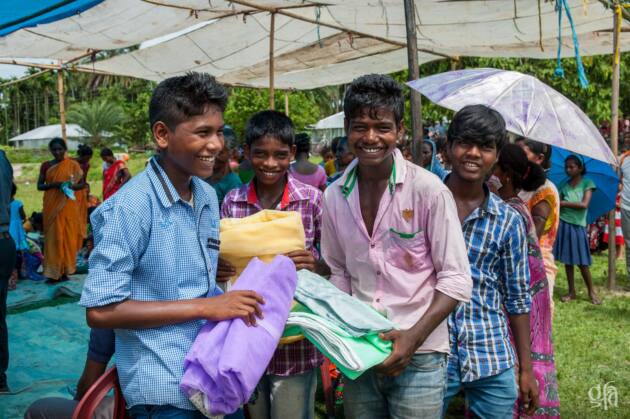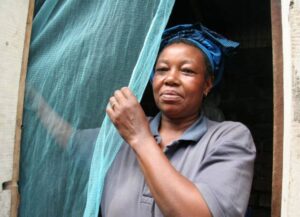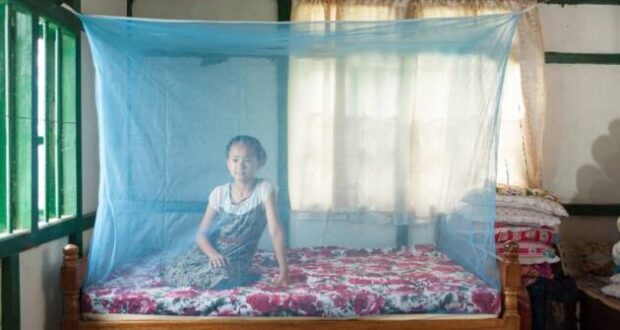Mosquito bites will result in more than 700,000 deaths around the world this year — wiping out the equivalent of the entire population of Washington, D.C.. The World Health Organization says it could be millions. That from a new report for World Mosquito Day that was observed August 20. It will infect many more people than Covid-19.
Malaria is the most common mosquito-borne disease, claiming more than 400,000 lives worldwide every year — mostly children under five, says the just-released report by mission agency Gospel for Asia (GFA World, www.gfa.org).
The report — Winning the Ancient Conflict Between Man and Mosquito — reveals the lethal impact of mosquitoes across Asia, where the aerial menace also spreads other diseases, such as dengue, yellow fever, Zika, West Nile virus, and Japanese encephalitis.
“Without proper prevention or treatment, the consequences of a simple mosquito bite are very serious in many places around the world,” said GFA World founder Dr. K.P. Yohannan, whose Texas-based organization is on the ground across Asia in thousands of cities and villages. “Unfortunately, it’s a war that needs to be won and won and won — it rages on every day in places like Asia.”
The World Health Organization (WHO) says mosquitoes actually could be responsible for “several million deaths” every year. World Mosquito Day, observed annually on Aug. 20, commemorates the breakthrough discovery in 1897 that female mosquitoes transmit malaria between people. So far, there’s no vaccine for malaria and scientists have been searching for a hundred years.

National World Mosquito Day commemorates the discovery in 1897 by British doctor Sir Richard Ross that mosquitoes transmit malaria. GFA World workers hold a variety of events to distribute mosquito nets to guard against insect-borne diseases, including yellow fever, malaria, dengue and zika. These bednet recipients in South Asia smile with appreciation as they can now sleep without discomfort or fear of mosquito bites at night. Photo: GFA.
More than half the world’s population is at risk of contracting dengue — a raging fever that claims 40,000 lives every year.
Annoying Bite Could Be Deadly
“For most of us in the West, a mosquito bite is an itchy annoyance,” Yohannan said, “but for hundreds of thousands across Asia, it’s deadly.”
Millions across the region can’t afford vaccines against mosquito-borne diseases such as West Nile virus if available — or even basic preventive measures, such as insect repellent or window screens.
The most common, and most dangerous, are the various species in the Culex, Anopheles and Aedes
Mosquitoes can live in almost any environment, with the exception of extreme cold. They favor forests, marshes, tall-grass and locales, and ground that is wet at least part of the year. Incredibly, Arctic tundra is a great breeding-place for mosquitoes—the soil that has been frozen all winter thaws in the warming weather, rendering these vast acres huge mosquito incubators. These insects must have water to survive (breeding can occur in as little as one inch of standing water), so areas that border ponds, lakes or puddles are essential to their spread and survival.
According to the WHO, 700,000 people die each year from malaria, dengue, Japanese encephalitis and other vector-borne diseases.
Categorized among the group known as “blood-feeding arthropods” which also includes ticks and fleas, mosquitoes are responsible for a wide range of diseases that result in various symptoms such as fevers, rashes, aches and pains, vomiting and death. The World Health Organization classifies such illnesses as “vector-borne diseases,” which are “human illnesses caused by parasites, viruses and bacteria that are transmitted by vectors.”
These vectors can transmit infectious pathogens between humans, or from animal to humans. Mosquitoes, as mentioned, are blood-sucking insects; when doing so, they can ingest pathogens from a host and transfer it to another host once that pathogen begins to replicate. Often, once a vector becomes infected, it is capable of transmitting the pathogen for the rest of its life, becoming a flying, one-insect, disease-delivery machine.

United Republic of Tanzania: A woman puts up a mosquito bednet to safeguard her family at night from mosquito bites.
Photo by WHO / S. Hollyman
According to the WHO, 700,000 people die each year from malaria, dengue, Japanese encephalitis and other vector-borne diseases.
“The burden of these diseases is highest in tropical and subtropical areas, and they disproportionately affect the poorest populations,” writes the WHO.
Every year, GFA World and other organizations distribute thousands of free mosquito-repelling bed nets to impoverished families, students in hostels, and agricultural workers in endemic areas who are among the most at-risk of getting bitten at night.
So far, GFA World has distributed more than 1.3 million nets across Asia, costing around $10 a piece. Nets are the most effective way to prevent potentially deadly bites when mosquitoes are most active at dusk and daybreak.
“Our response is driven by the love of God,” said Yohannan, author of the new book Never Give Up. “Mosquito reduction efforts by organizations such as GFA World are one of the evidences that fulfill Christ’s imperative to ‘love your neighbor as yourself’.”
–Assist News Service
 Metro Voice News Celebrating Faith, Family & Community
Metro Voice News Celebrating Faith, Family & Community











